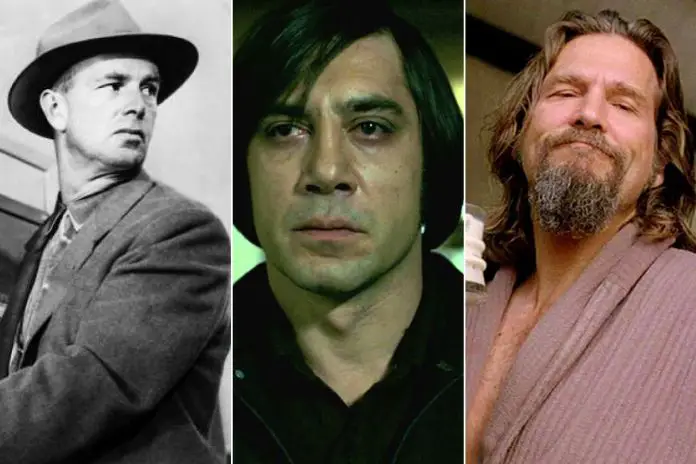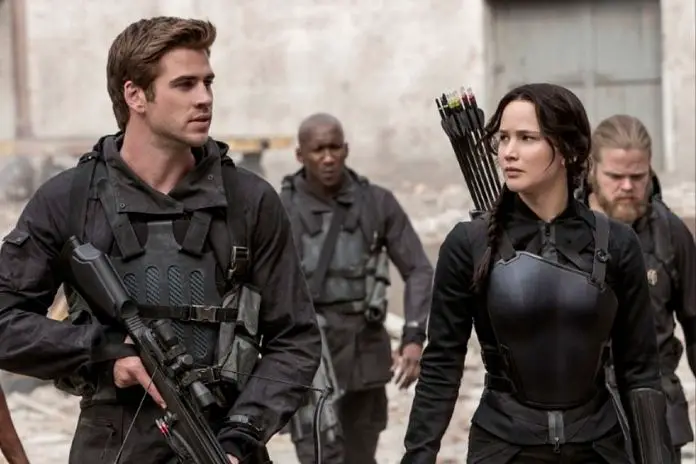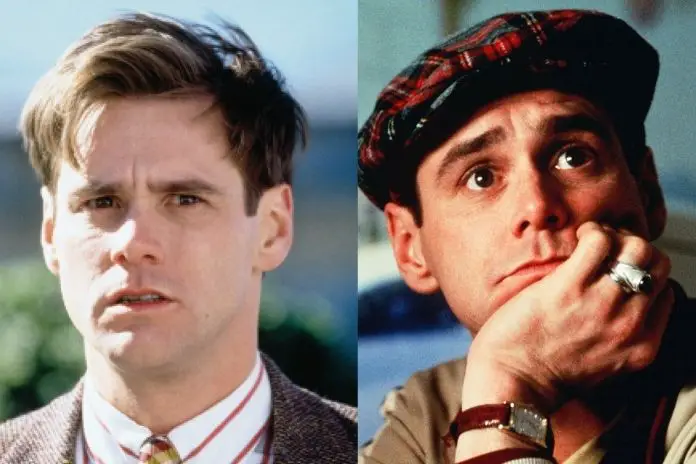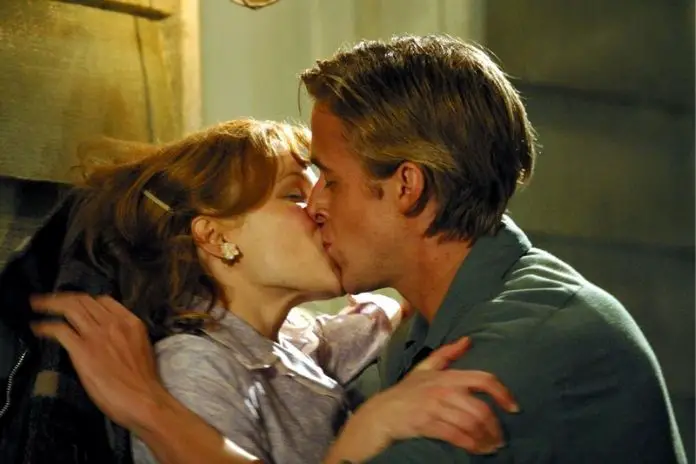“Fargo” is a 1996 crime-thriller film directed by Joel and Ethan Coen, and it tells the story of a small-town car salesman who hires two criminals to kidnap his wife in order to extort a hefty ransom from his wealthy father-in-law. The film is set in the snowy landscape of Minnesota and North Dakota and it follows the investigation of a local police chief (played by Frances McDormand) as she unravels the twisted plot.
The film’s plot is masterfully crafted and keeps the audience guessing until the very end. The Coen brothers’ writing is sharp and clever, with darkly humorous moments that perfectly balance out the brutal violence. The film also explores themes of greed, deception and the consequences of one’s actions.
The acting in the film is top-notch, with standout performances from Frances McDormand, William H. Macy, and Steve Buscemi. McDormand’s portrayal of the determined and no-nonsense police chief is both funny and formidable, and she perfectly captures the spirit of the Midwest. The casting is also spot-on, with each actor fitting perfectly into their roles.
The film’s direction is also noteworthy, with the Coen brothers’ signature style on full display. The film’s cinematography perfectly captures the harsh beauty of the snowy landscape and the film’s score, composed by Carter Burwell, adds an eerie and suspenseful feeling to the film. The film’s production design, special effects and editing are all top-notch, and the film’s pacing is steady and keeps the audience engaged throughout.
Overall, “Fargo” is a gripping and masterfully crafted film that keeps the audience guessing until the very end. The film’s darkly humorous tone, sharp writing and outstanding performances make it one of the best crime-thrillers of the 90s. It’s a film that I highly recommend, and it’s one that I know I will watch again and again.
There are several movies that are similar in style and tone to “Fargo” (1996):
- “No Country for Old Men” (2007) – another crime-thriller directed by the Coen brothers, this film tells the story of a drug deal gone wrong and the consequences that follow.
- “Blood Simple” (1984) – the Coen brothers’ debut film, this is a crime-thriller that tells the story of a bar owner who hires a private investigator to kill his wife and her lover.
- “The Big Lebowski” (1998) – another crime-comedy from the Coen brothers, this film tells the story of a slacker who is mistaken for a millionaire of the same name.
- “The Killing” (1956) – a classic crime-thriller directed by Stanley Kubrick, this film tells the story of a heist gone wrong and the aftermath.
- “The Great White Hope” (1970) – a crime-drama directed by Martin Ritt, this film tells the story of a man who becomes involved in a dangerous game of deception.
- “The Silence of the Lambs” (1991) – a psychological thriller directed by Jonathan Demme, this film tells the story of an FBI agent who hunts a serial killer.
- “A Simple Plan” (1998) – a crime-thriller directed by Sam Raimi, this film tells the story of three friends who discover a plane crash containing $4.4 million and the dangerous consequences that follow.
- “The Ice Harvest” (2005) – a crime-comedy directed by Harold Ramis, this film tells the story of a lawyer and his friend who steal money.
Contents
1. No Country for Old Men (2007)
“No Country for Old Men” is a 2007 crime-thriller film directed by Joel and Ethan Coen. The film is based on the novel of the same name by Cormac McCarthy, and tells the story of a man named Llewelyn Moss (Josh Brolin) who stumbles upon the aftermath of a drug deal gone wrong and takes a satchel of money from the scene. The story then follows Llewelyn as he tries to evade a ruthless hitman (Javier Bardem) who is hired to retrieve the money, as well as a local sheriff (Tommy Lee Jones) who is trying to unravel the case.
The film explores themes of fate, morality, and the nature of evil. The film’s tone is tense and suspenseful, with moments of violence that are brutal and shocking. The cinematography is also noteworthy, capturing the vast and barren landscape of the American Southwest.
The acting in the film is outstanding, with standout performances from Josh Brolin, Javier Bardem, and Tommy Lee Jones. Bardem’s portrayal of the hitman Anton Chigurh is particularly memorable, as he creates a character that is both terrifying and enigmatic.
The film’s direction, by the Coen brothers, is also noteworthy, with a masterful sense of pacing and an eye for detail. The film’s score, composed by Carter Burwell, adds an eerie and suspenseful feeling to the film. The film’s production design, special effects and editing are all top-notch, and the film’s pacing is steady and keeps the audience engaged throughout.
2. Blood Simple” (1984)
“Blood Simple” is a 1984 crime-thriller film directed by Joel and Ethan Coen. This film was their debut feature film and it tells the story of a Texas bar owner named Marty (Dan Hedaya) who hires a private investigator (M. Emmet Walsh) to kill his wife Abby (Frances McDormand) and her lover Ray (John Getz). As the investigator sets out to carry out the plan, things quickly spiral out of control and the characters’ actions lead to unexpected and violent consequences.
The film explores themes of greed, betrayal, and the complexity of human nature. The film’s tone is dark, and the humor is often of the blackest kind. The film’s style is neo-noir and it’s heavily influenced by film noir and crime films of the 1940s and 1950s.
The acting in the film is outstanding, with standout performances from Dan Hedaya, M. Emmet Walsh, and Frances McDormand. The film’s direction, by the Coen brothers, is also noteworthy, with a masterful sense of pacing and an eye for detail. The film’s score, composed by Carter Burwell, adds an eerie and suspenseful feeling to the film. The film’s cinematography, production design, special effects and editing are also noteworthy, and the film’s pacing is steady and keeps the audience engaged throughout.
Overall, “Blood Simple” is a tense and stylish crime-thriller that showcases the Coen brothers’ talents as filmmakers. This film is a must-watch for fans of crime-thrillers and the Coen brothers’ work.
3. The Big Lebowski
“The Big Lebowski” is a 1998 crime-comedy film directed by Joel and Ethan Coen. The film tells the story of Jeffrey “The Dude” Leboswki (Jeff Bridges), a slacker and fan of bowling, who is mistaken for Jeffrey Lebowski, a wealthy philanthropist, and is subsequently drawn into a kidnapping scheme involving the latter’s wife. Alongside a cast of eccentric characters, including a Vietnam veteran (John Goodman) and a nihilist (John Turturro), the Dude sets out to clear his name and rescue the kidnapped woman.
The film is a mix of genre, blending elements of crime, comedy, and neo-noir. The film’s tone is offbeat, and the humor is often absurdist. The film’s style is heavily influenced by Raymond Chandler’s detective novels of the 1940s and 1950s.
The acting in the film is outstanding, with standout performances from Jeff Bridges, John Goodman, and John Turturro. The film’s direction, by the Coen brothers, is also noteworthy, with a masterful sense of pacing and an eye for detail. The film’s score, composed by Carter Burwell, adds an eerie and suspenseful feeling to the film. The film’s cinematography, production design, special effects, and editing are also noteworthy, and the film’s pacing is steady and keeps the audience engaged throughout.
Overall, “The Big Lebowski” is a unique and entertaining crime-comedy that showcases the Coen brothers’ talents as filmmakers. This film is a must-watch for fans of crime-comedies and the Coen brothers’ work. The film is also well known for its cult following and has several quotes and scenes that have become iconic in pop culture.
4. The Killing (1956)
“The Killing” is a 1956 crime film directed by Stanley Kubrick. The film tells the story of a group of small-time crooks who plan and execute a daring racetrack heist. The film follows the planning and execution of the robbery and the aftermath as the criminals are picked off one by one. The film is shot in a documentary-like style and follows a non-linear narrative.
The film explores themes of greed, betrayal, and the complexities of human nature. The film’s tone is dark and its style is heavily influenced by film noir. The film’s characters are complex and morally ambiguous.
The acting in the film is outstanding, with standout performances from Sterling Hayden, Coleen Gray, and Vince Edwards. The film’s direction, by Stanley Kubrick, is also noteworthy, with a masterful sense of pacing and an eye for detail. The film’s score, composed by Gerald Fried, adds an eerie and suspenseful feeling to the film. The film’s cinematography, production design, special effects, and editing are also noteworthy, and the film’s pacing is steady and keeps the audience engaged throughout.
Overall, “The Killing” is a tense and stylish crime-thriller that showcases the talents of Stanley Kubrick as a filmmaker. This film is a must-watch for fans of crime-thrillers and the films of Stanley Kubrick. The film’s influence can be seen in many films that followed it and it is considered as one of the best films of the genre.
5. The Great White Hope (1970)
The Great White Hope is a 1970 film directed by Martin Ritt, based on the 1967 play of the same name by Howard Sackler. The film stars James Earl Jones and Jane Alexander and tells the fictionalized story of African-American boxer Jack Johnson, who was the first black heavyweight champion of the world.
The film is set in the early 20th century and explores the racism and discrimination faced by Johnson, both in and out of the ring. The story centers on Johnson’s relationship with his white girlfriend, Eleanor Bachman (played by Alexander), and the challenges they face as a interracial couple. The film also addresses the societal pressure placed on Johnson to “prove” himself as a boxer and a human being by defeating a “great white hope” challenger.
The theme of the movie is racism and discrimination, and how it affected the life of Jack Johnson. It also explores the societal pressure placed on a black man to prove himself in a white-dominated world, and the toll that takes on his personal relationships and mental well-being.
6. The Silence of the Lambs (1991)
The Silence of the Lambs is a 1991 psychological horror-thriller film directed by Jonathan Demme and based on the 1988 novel of the same name by Thomas Harris. The film stars Jodie Foster, Anthony Hopkins, and Scott Glenn and tells the story of FBI agent Clarice Starling (Foster) as she attempts to track down a serial killer known as “Buffalo Bill” (played by Ted Levine) while also consulting with the imprisoned cannibalistic serial killer Dr. Hannibal Lecter (Hopkins) for clues.
The film is a crime thriller where Starling, a young and ambitious FBI agent, is tasked with interviewing the infamous Dr. Hannibal Lecter, a brilliant and cultured psychiatrist turned serial killer, in order to gain insights into the mind of another serial killer, known as Buffalo Bill, who is abducting and killing young women. Starling and Lecter engage in a dangerous and intense cat-and-mouse game, as she tries to extract information from him while he manipulates her and attempts to escape.
The theme of the movie is power, manipulation, and the blurred lines between good and evil. The film explores the manipulation of power by both the FBI and the serial killers, and how the actions of one can affect the other. It also raises questions about the nature of evil, and how even the most intelligent and cultured individuals can be capable of horrific acts.
7. A Simple Plan (1998)
A Simple Plan is a 1998 crime-thriller film directed by Sam Raimi and based on the 1993 novel of the same name by Scott B. Smith. The film stars Bill Paxton, Billy Bob Thornton, Bridget Fonda, and Brent Briscoe, and tells the story of three friends who discover a crashed plane containing $4.4 million in the woods, and their attempts to keep the money for themselves.
The story follows Hank Mitchell, his brother Jacob and their friend Lou, who find a small plane crashed in the woods and discover a large sum of money. The three men decide to keep the money and make a plan to divide it among themselves. However, as they try to keep their discovery a secret, things start to spiral out of control as greed, mistrust and deception come into play, leading to a series of events that put their friendship, family and lives at risk.
The theme of the movie is the corrupting nature of greed and how it can change people and their relationships. The film explores how the sudden discovery of wealth can change people, and how the desire for it can lead to moral decay, mistrust and ultimately self-destruction. It also touches on the idea of loyalty, betrayal and the struggle to hold on to one’s humanity when faced with the temptation of wealth.
8. The Ice Harvest (2005)
The Ice Harvest is a 2005 dark comedy film directed by Harold Ramis and based on the novel of the same name by Scott Phillips. The film stars John Cusack, Billy Bob Thornton, Connie Nielsen, and Randy Quaid, and tells the story of a small-time Kansas lawyer and his business partner who embezzle $2 million from a mob-controlled Kansas City strip club on Christmas Eve, and their attempts to escape with the money.
The story takes place on Christmas Eve in Wichita, Kansas, where a small-time lawyer and a strip club owner, Charlie Arglist (played by John Cusack) and his partner Vic Cavanaugh (Billy Bob Thornton) embezzle $2 million from their mob boss, Bill Guerrard. As they try to leave town with the money, they are pursued by Guerrard’s thugs and are forced to confront the consequences of their actions. Along the way, they encounter various obstacles, including a corrupt police detective, and a series of unexpected events that threaten to derail their plans.
The theme of the movie is the darker side of human nature, specifically greed, corruption, and the consequences of moral decay. The film explores how the desire for money can lead people to make questionable decisions and the price they have to pay for it. It also touches on the idea of redemption and the possibility of change, even in the most unlikely of circumstances.




